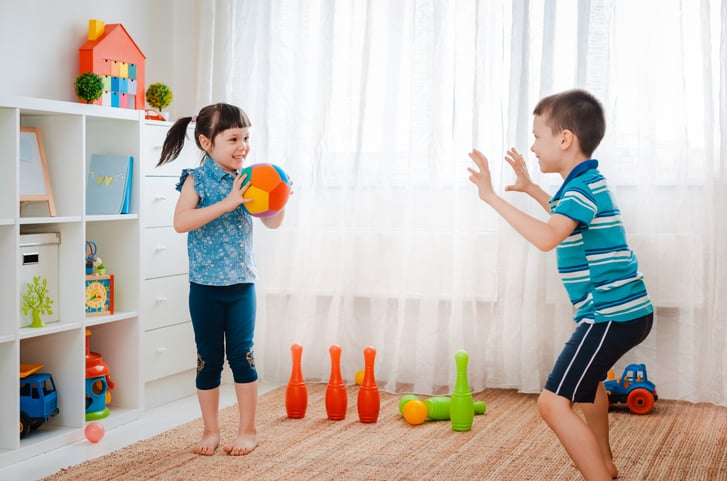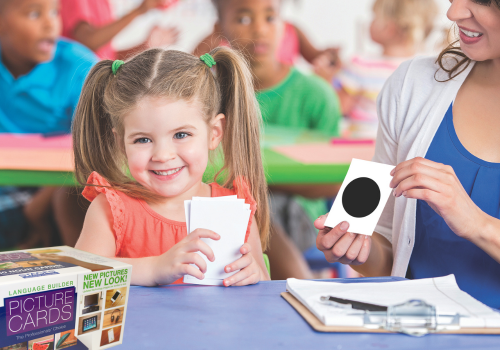Social Skills Deficits: Bridging the Interaction Gap
This article is the third in our series on Key Root Causes of Disruptive Classroom Behaviors and How to Help
Do you have a student who seems to be unable to interact appropriately with other students creating a chaotic classroom environment? Underdeveloped social skills may be to blame... and addressing that gap may provide the solution to a calmer classroom. When students struggle to interact with peers or misinterpret social cues, it can lead to misunderstandings, frustration, and behaviors that disrupt the learning environment. Addressing these social skill deficits is essential for creating a classroom atmosphere where all students can build positive relationships and succeed academically.
Addressing Social Skill Deficits in the Classroom
Social skill deficits refer to difficulties in understanding and responding to social situations appropriately. These challenges can manifest in various ways, such as difficulty making friends, misinterpreting body language, or overreacting to minor conflicts. For instance, a student might misinterpret a peer’s friendly gesture as a threat or may struggle to share or take turns during group activities. Such difficulties can lead to isolation, anxiety, or behaviors that are perceived as disruptive.
Direct Instruction and Structured Social Skills Lessons
One of the most effective ways to support students with social skill deficits is through direct social skills instruction and practice. Integrating social skills lessons into daily routines can help students learn how to interact positively with others. This can be achieved through role-playing exercises, structured group activities, and guided peer interactions. For example, during a group project, teachers can explicitly teach and model how to collaborate, communicate, and resolve conflicts. These structured interactions provide students with the opportunity to practice and reinforce positive social behaviors in a controlled setting.
Structured lessons targeting social skills acquisition can be embedded into the daily schedule. One option is the Language Builder: Academic Readiness Intervention System (ARIS) which has a plethora of social/emotional lessons targeting the special needs classroom. These lessons are designed to help students identify and understand emotions—both their own and those of others—which is a critical component of social interactions. For instance, ARIS lessons might include activities that teach students how to recognize different facial expressions and body language cues, helping them to better interpret the emotions and intentions of their peers. Additionally, these lessons guide students in determining appropriate responses to various social situations, such as what to say or do when they feel upset or how to handle a disagreement with a friend.
Creating a Supportive Social Environment and Collaboration
Creating a supportive social environment in the classroom is another crucial strategy for addressing social skill deficits. Teachers can foster an environment that encourages positive social interactions by using tools such as social stories and visual supports. Social stories are short narratives that explain social situations and appropriate responses in a simple, clear way, making them particularly useful for students who struggle with abstract social concepts. Visual supports, like emotion charts or behavior cue cards, can serve as reminders for students on how to respond to different social situations. Incorporating cooperative learning activities, where students must work together to achieve a common goal, also promotes teamwork and communication among students.
Collaboration with specialists, such as speech-language pathologists and school counselors, can further support social skill development. These professionals can offer targeted interventions and strategies tailored to individual student needs. Involving families in the process is equally important. When parents are educated about the specific social skills their child is working on in school and the strategies being used to encourage the use of those skills, they can reinforce these skills at home. Consistent practices and open communication between home and school create a cohesive approach to social skill development, ensuring that students receive the support they need across all environments.
Monitoring progress and adjusting strategies based on student growth is an ongoing process. As students develop their social skills, it’s important to regularly assess their progress and make adjustments to interventions as needed. This might involve increasing the complexity of social interactions or introducing new challenges as students become more adept at navigating social situations. Documenting successes and challenges not only helps in refining future social skills instruction but also provides valuable insights into the student’s development.
Addressing social skill deficits in the classroom is essential for reducing disruptive behaviors and fostering a positive learning environment. By integrating social skills instruction, utilizing resources like the ARIS Social/Emotional lessons, creating supportive social environments, and collaborating with specialists and families, teachers can help students develop the social skills they need to succeed both academically and socially. A proactive approach to social skill development not only improves classroom behavior but also contributes to the overall emotional and social well-being of students.
Want More Content Like This?
This article is part of a 6-part series “Root Causes of Disruptive Classroom Behaviors”. The other articles in this series include:
- Communication Difficulties: The Silent Barrier
- Sensory Processing Issues: Navigating Overwhelming Environments
- Environmental Factors: Crafting Supportive Learning Spaces
- Strengthening the Student-Teacher Relationship as a Foundation for Positive Behavior
- Addressing Executive Functioning Challenges as a Root Cause of Disruptive Behaviors





